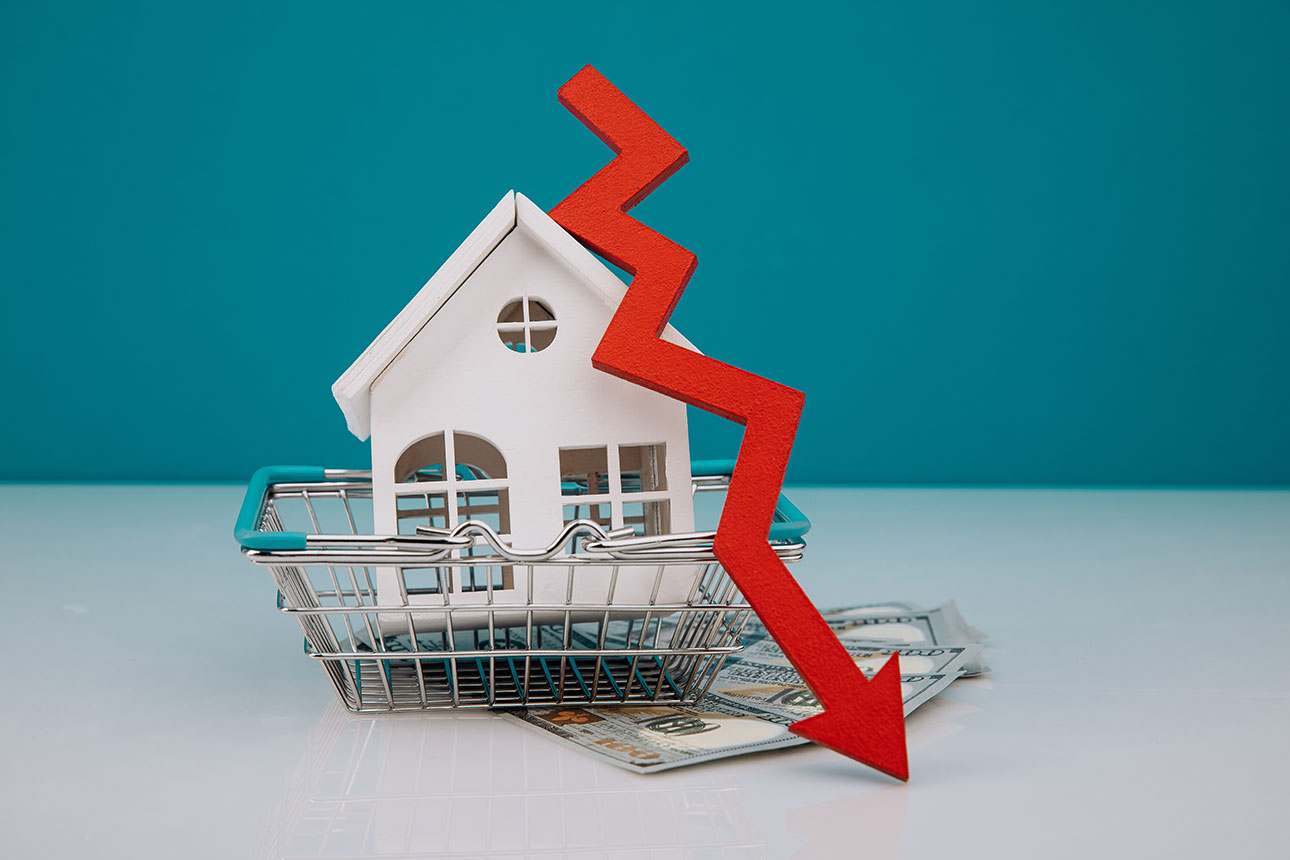8 ways to determine if you need to decrease your home’s listing price
Updated Fri, Jul 26, 2024 - 5 min read
Top blog articles
Selling a house can be stressful. The process can be even more grueling if you can’t sell your home quickly. Week after week keeping your house perfectly clean and ready to show can wear a home seller down.
If this is you and you’re wondering whether to lower the price of your home, there are a few factors to keep in mind. Ask yourself if you’ve done everything possible to prepare your home for a quick sale.
Does your landscaping look inviting? Is your house clean and free of clutter? Did you pay for home staging? Have you repaired everything that’s broken, such as a dripping faucet or squeaky hinge?
If you’ve done everything on this list and have considered all possible strategies to make your home sell faster, it might be time to drop your price.
1. Review recent sales data
When your real estate agent puts your house on the market, he or she likely priced your house based on recent sales data in your neighborhood. However, the real estate market can change quickly. If your house hasn’t sold in a few weeks, it might be time to ask your real estate agent to review comparable properties.
It’s possible that homes equivalent to yours have sold for less than your list price in the past few weeks. It’s also possible that similar homes still on the market have recently reduced their price. If that’s the case, consider lowering your list price so you can stay competitive and attract more buyers.
2. Monitor your time on the market

Each real estate market is different. Some markets are seemingly hot all the time, and homes sell quickly within days. Other markets may be slower in less-populated or rural areas. It’s a good idea to speak to your real estate agent about the home-selling timeline you should expect.
If your house is still on the market after three weeks, that might be normal for your geographical area. If your house has been on the market for months, and you need to move, it might be time to reevaluate your list price. This is even more important if you’ve already moved and are settling in elsewhere.
Ask your agent how long homes similar to yours were on the market. If homes in your area sold much faster than yours, it could indicate your home is overpriced and you need to make a reduction.
3. Evaluate economic indicators
Inflation, rising interest rates, changes in the unemployment rate, and other economic conditions can sometimes cause potential home buyers to wait before purchasing a home. If interest rates have increased since listing your house, it’s possible a group of buyers was priced out. It’s hard to predict when interest rates will decline, so consider whether lowering your price will attract more buyers.
4. Follow regional trends
Home sellers should be aware of global and national trends, but they should also keep abreast of regional trends.
For example, have there been reports of poor water quality, air pollution, or an increase in crime in your neighborhood? Has there been negative news about your local school district or city council? Was there a recent property tax increase? If so, it could be more difficult to sell your home.
Although you can’t control all the problems within your city, being aware of them could help you understand why there is less interest in your home. Please speak to your real estate agent about how best to market your home so it can sell more quickly.
Read more: Timely home renovations increase price
5. Consider your own economic situation
You might need to sell your home before buying another one, but it’s also possible you’ve already purchased another home and need to move. If you’re carrying two mortgage payments, that could cause financial stress.
If you’re having trouble making your mortgage payments on time, and your personal finances are at stake, that’s another reason why it might be helpful to drop the price of your home.
It’s certainly disappointing to net less than you hoped for on your home sale, but at the same time, it’s not worth holding out for a higher price if it’s putting stress on your personal finances.
6. Share your concerns with your real estate agent

Your real estate agent is your partner and guide when it comes to selling your home. Your agent wants to sell your home just as badly as you do. If you have concerns about your list price or how slowly your home is selling, ask for their opinion and suggestions.
Read more: What is a net listing in real estate?
7. Listen to repeat comments
If numerous potential buyers are interested in your home but say the price is too high, it’s essential to listen. A single comment might be just one person’s opinion, but several similar comments are worth considering as valuable feedback. After each showing, ask your real estate agent for buyers’ feedback. You can’t incorporate everyone’s suggestions, but you can start to notice trends.
Read more: How to enhance your home listings
8. Monitor the number of showings
The number of showings you have is a form of feedback as well. If you have a lot of showings or second showings, it means people are interested in your house. If you don’t get a lot of showings or the number of showings starts to slow down, it might signal the need to reevaluate your price point.
Read more: How to buy a second home without selling the first









